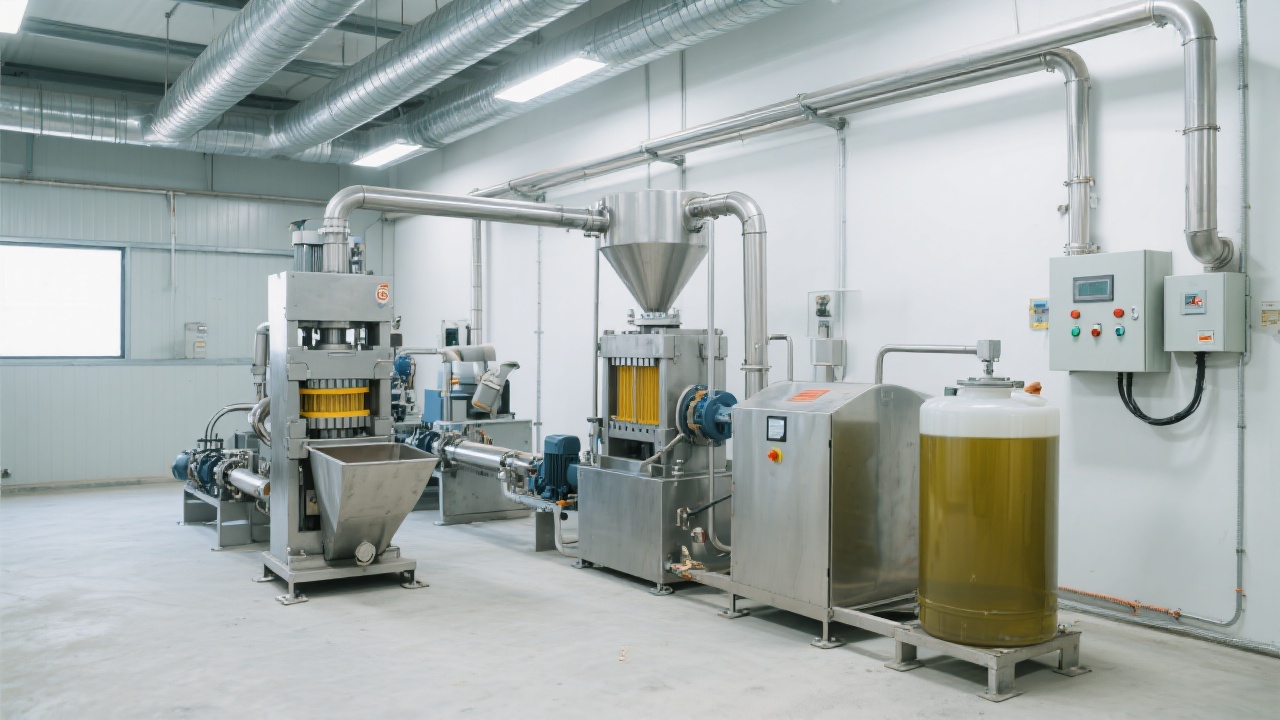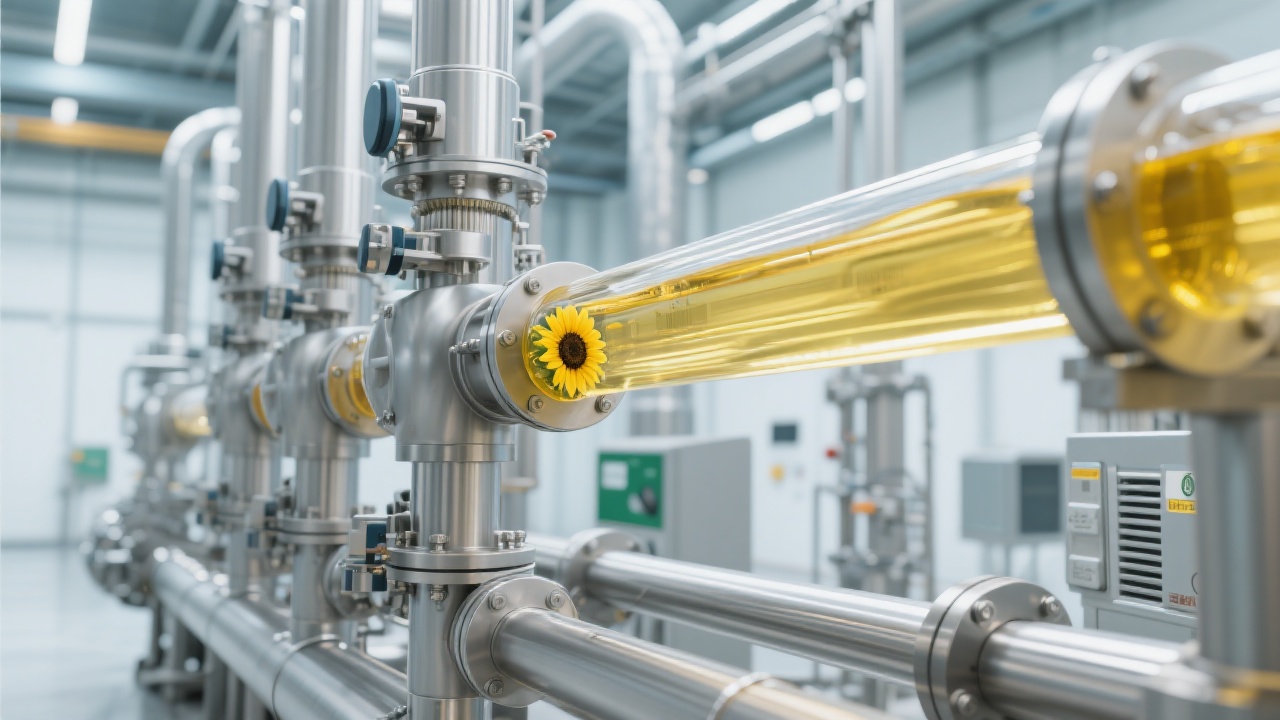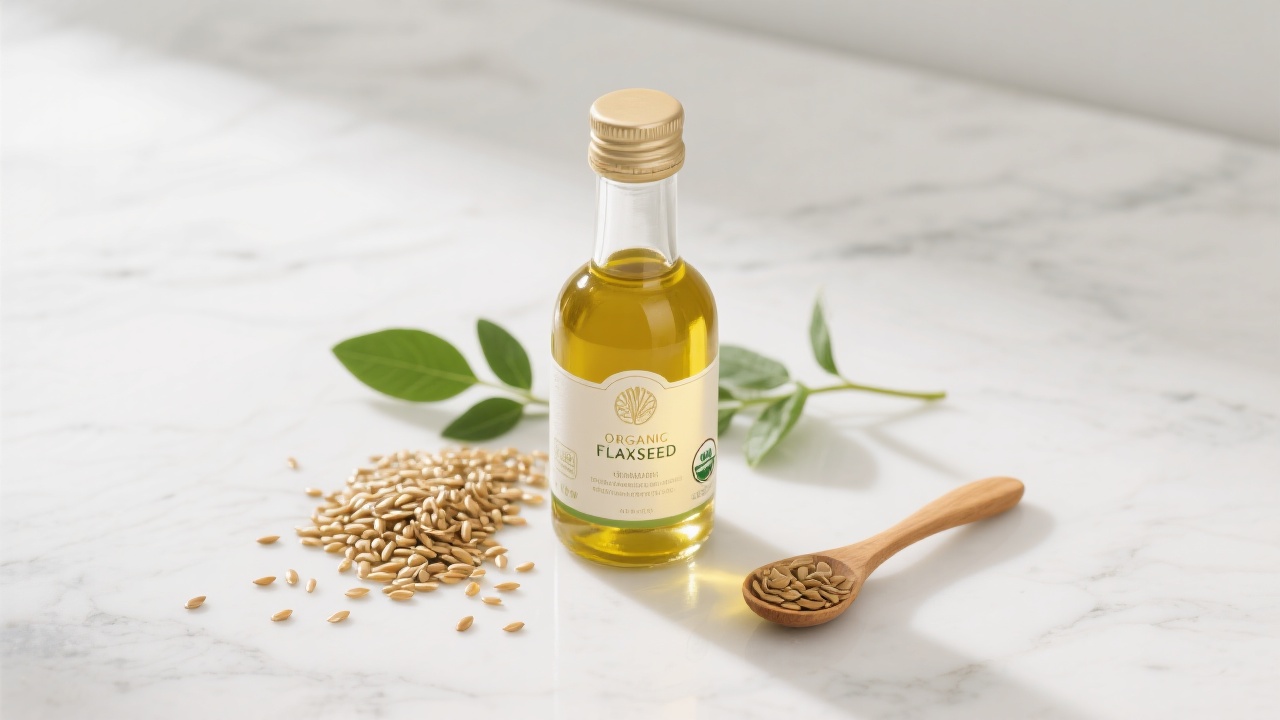
You might be wondering how to take your peanut oil production to the next level. The answer lies in the PLC (Programmable Logic Controller) control system. In the peanut oil pressing process, the PLC control system plays a central role. It replaces manual operations to achieve precise temperature control, pressure control, and automatic start - stop functions.
For example, in a traditional peanut oil pressing process, manually adjusting the temperature and pressure is time - consuming and inaccurate. With the PLC control system, you can set the desired temperature and pressure values in advance. The system will continuously monitor these parameters and make real - time adjustments. It can maintain the temperature within an accuracy of ±1°C and the pressure within ±5 psi, ensuring a stable and efficient pressing process.

Let's face it, you may encounter some common problems in peanut oil pressing, such as blockages, low oil yield, and high energy consumption. The root causes of these problems can be analyzed, and PLC - based solutions can be provided.
Blockages often occur due to improper feeding speed or inconsistent peanut particle size. The PLC control system can implement a fault self - diagnosis function. If a blockage is detected, it will automatically stop the feeding process and issue an alarm. At the same time, it can adjust the parameters dynamically. For example, if the oil yield is low, the system can increase the pressure and temperature within a reasonable range to improve the extraction rate. By using the PLC control system, you can increase the oil yield by more than 15% and reduce the unit energy consumption by 15%.
| Problem | Cause | PLC - based Solution |
|---|---|---|
| Blockage | Improper feeding speed, inconsistent particle size | Fault self - diagnosis, stop feeding, alarm |
| Low oil yield | Insufficient pressure or temperature | Dynamic parameter adjustment |
| High energy consumption | Inefficient operation | Optimal parameter setting |
Let's look at some real - world customer cases. Different peanut varieties have different characteristics, and the PLC control system allows you to adjust the pressing parameters accordingly. For example, a customer in a certain region had been using a traditional pressing method with a particular peanut variety, and the oil yield was only around 35%. After implementing the PLC - controlled system and adjusting the parameters according to the peanut variety, the oil yield increased to 42%.
Temperature control also has a significant impact on the flavor and impurity content of the oil. Higher temperatures can increase the oil extraction rate, but they may also cause the oil to have a stronger flavor and more impurities. The PLC control system can precisely control the temperature during the pressing process to balance the oil yield, flavor, and impurity content. This ensures that your peanut oil has a high - quality flavor and low impurity content, meeting the strictest international standards.

Beyond the direct benefits in oil production, the combination of environmental design and automation brings comprehensive benefits. For instance, the waste residue from peanut oil pressing can be recycled and used as feed or fertilizer. The PLC - controlled system can optimize the entire production process, reducing waste and maximizing resource utilization.
By adopting an environmentally friendly design and automation, you can improve the overall return on investment. The reduction in energy consumption and the utilization of waste residue not only save costs but also enhance your brand's environmental image. This is an important factor in today's market, where consumers are increasingly concerned about environmental protection.

Mastering these 3 parameter - setting skills can significantly improve the efficiency of your peanut oil production. Ensure that every batch of peanut oil meets international standards. Click here to learn more about how the PLC control system can transform your peanut oil production.
Do you have similar problems in your peanut oil production? Share your specific scenario with me, and I'll send you 3 industry - specific solution cases.

